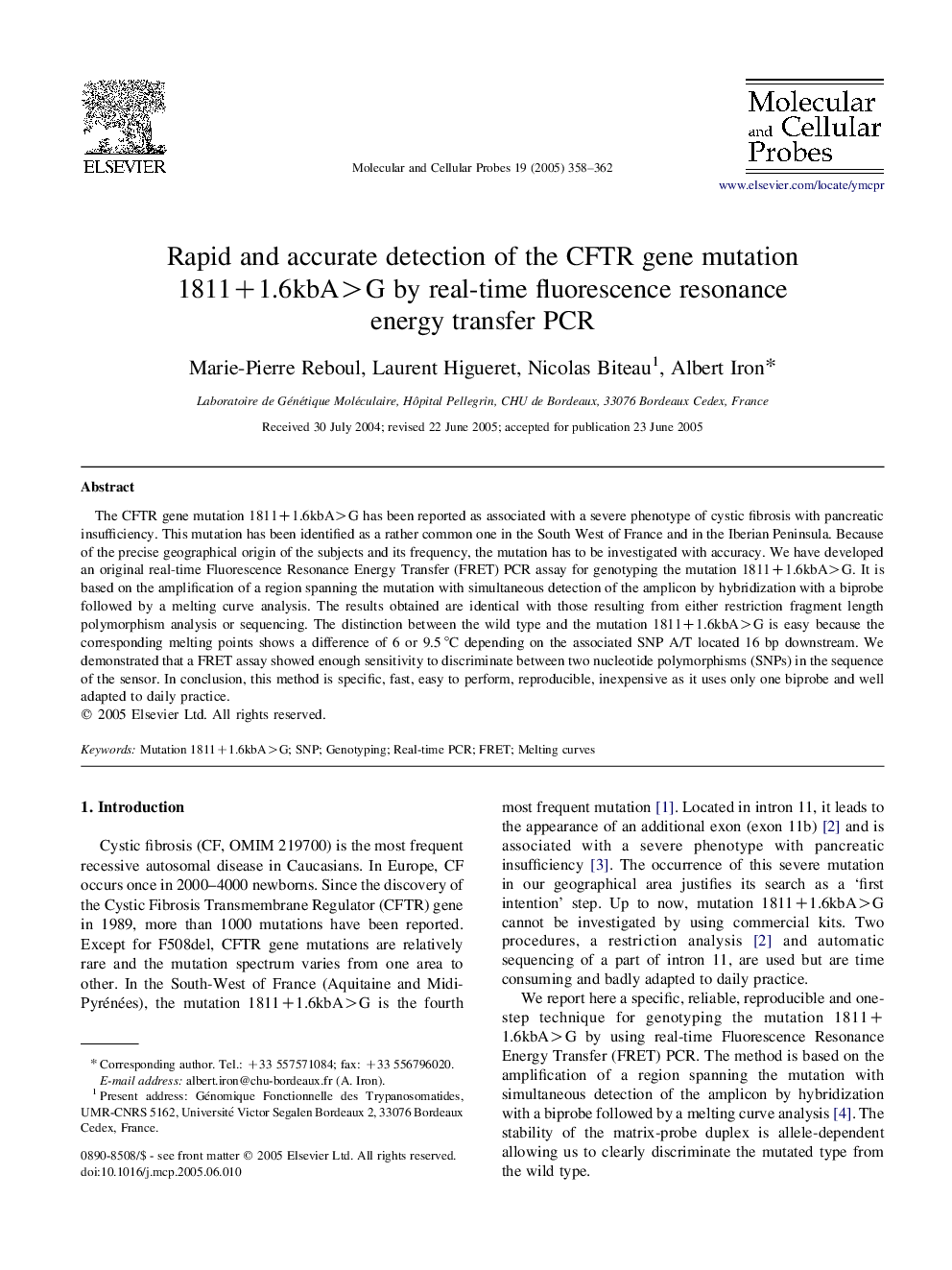| Article ID | Journal | Published Year | Pages | File Type |
|---|---|---|---|---|
| 10957754 | Molecular and Cellular Probes | 2005 | 5 Pages |
Abstract
The CFTR gene mutation 1811+1.6kbA>G has been reported as associated with a severe phenotype of cystic fibrosis with pancreatic insufficiency. This mutation has been identified as a rather common one in the South West of France and in the Iberian Peninsula. Because of the precise geographical origin of the subjects and its frequency, the mutation has to be investigated with accuracy. We have developed an original real-time Fluorescence Resonance Energy Transfer (FRET) PCR assay for genotyping the mutation 1811+1.6kbA>G. It is based on the amplification of a region spanning the mutation with simultaneous detection of the amplicon by hybridization with a biprobe followed by a melting curve analysis. The results obtained are identical with those resulting from either restriction fragment length polymorphism analysis or sequencing. The distinction between the wild type and the mutation 1811+1.6kbA>G is easy because the corresponding melting points shows a difference of 6 or 9.5 °C depending on the associated SNP A/T located 16 bp downstream. We demonstrated that a FRET assay showed enough sensitivity to discriminate between two nucleotide polymorphisms (SNPs) in the sequence of the sensor. In conclusion, this method is specific, fast, easy to perform, reproducible, inexpensive as it uses only one biprobe and well adapted to daily practice.
Related Topics
Life Sciences
Biochemistry, Genetics and Molecular Biology
Cell Biology
Authors
Marie-Pierre Reboul, Laurent Higueret, Nicolas Biteau, Albert Iron,
